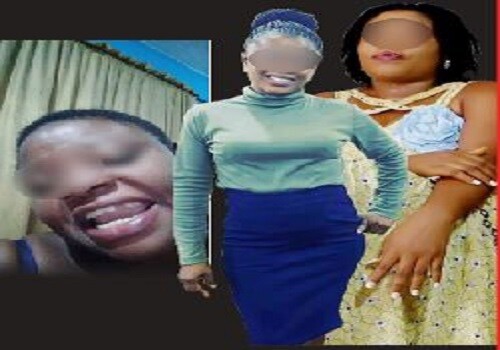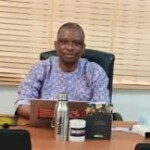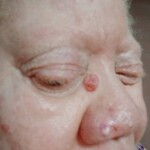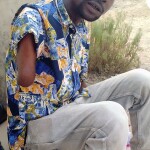Predators know the crude sign language of sexual and domestic violence, but the criminal justice system has none yet for redress
GBENGA OGUNDARE
When Ronke met Mike in 2016, her hearing impairment was no disruption strong enough was no disruption strong enough to make her miss the signs of Mike’s affection for her.
“He even told me that was exactly the thing that swept him off his feet. And I was like really? Okay, no problem,” Ronke said.
And, indeed, there was no problem. Even if there was any warning sign loud as hell, Ronke couldn’t heed it. Not her fault. Love wasn’t only blind then, it was hard of hearing too.
She hardly introduced Mike to her grandma—who equally sounded him out if he knew what he was going into—when she got pregnant for him.
But reality set in after she had her first child.
“He changed,” Ronke said amid tears.
“He would spank and isolate me. He would not take me out.
“I felt depressed, useless, disappointed, regretful. He’d shout at me and I’d cry. I was lonely.”
The clarity with which she poured out her anguish and described the emotional torture her husband put her through is part of what expert regularly tick up as post-traumatic stress disorder (PTSD).
To relieve herself, Ronke just used all she had—venting all her morbid feeling.
No word could console her that she could hear. She is a one-track person. She can only express herself, thanks to hearing impairment.
Ronke said when depression set in, she heeded the advice to move out of the marriage. And she has sworn she’s gone for good.
Why not? She has her son, 4, the only fruit of the marriage, with her.
She was lucky. Unlike Adebisi, 34, a mother of twins that have been severed from her already. They are alive in the house of her equally deaf ex-husband—somewhere in Igando, Lagos.
Her friends traced the children in her desperate search. “But they told me initially on the phone that he and his mother and my twins had relocated to Abuja,” she said.

It is a nightmare, considering her dream when she met the man on Facebook in 2011.
Her romance followed a similar pattern as Ronke’s. They met eyeball to eyeball in Ogun in 2012, and he had a chance to know who he was in love with—with all her blemishes.
By 2015, she, too, got pregnant for him even before settling major issues: where to live, livelihood, duties and responsibilities.
The language of love is different from that of reality. With gestures, waves of the hands, rolls of the eyes, and coos, Adebisi could communicate love. But it was hard for her to tell him her feelings about his laziness and womanizing in the single room they lived with her mother-in-law because of the fear of his tendency to get violent.
What was life like in that hellhole?
“He beat me for seven years. He didn’t provide anything while I was pregnant. It was my big mummy in the US that sent me $300 for hospital bills and baby wears. My mother- in-law, who had no job except begging, was the one feeding me, the babies and their father,” she said.
When he trounced her, she had no way of airing her side of the story to her mother-in-law who does not understand the language of the deaf. Plus the mother-in-law would always take sides with her son (her only child), and rebuke her for nagging.
Sometimes, Adebisi took the beating for protesting her husband’s plan to take a second wife.
Sensing danger, Adebisi’s father suggested his daughter should leave the twins at home and get a job. But she tried hunting for two years without success.
The father then suggested that she move out and get a separate apartment, but her mother-in-law kicked against it.
“She said I could not go with my twins,” Adebisi said.
And that was how it eventually ended—on the note her husband was taking a new wife, and she would have to leave the twins if the decision was not okay by her.
She never reported this forced separation and other instances of domestic violence she suffered to the police or any agency.
“I didn’t even know of any,” she said.
She lived through it with no protection, no defence, and no survival tactics.

She was unlike Folake who is 13 years older. Folake’s situation, in terms of the available faculties, looks similar to Ronke’s: she can’t hear you talk love or spew hurt.
Notwithstanding, she knows domestic violence. She suffered it in her marriage to a man exactly like her, but 10 years older.
Over two decades ago, both Folake and David met at Festac in Lagos. They were immediately attracted to each other.
Their circumstances, in spite of their auditory impairment, were not that bad for a marriage. They both had something to do for a living. David worked for an FMCG company on the Island, in Lagos. She was a catfish farmer.
They eventually settled down and had a girl whom they supported through university. She’s now a graduate at 22.
In those years of raising their child, the couple somehow waxed cold in their love and the brute in the abuser reared up.
David, Folake said, manhandled her so many times, stripping her naked and kicking her out. “I could stay out for three days, two weeks, and sometimes a month,” she said.
David punched out her front tooth during one of those beatings. He was bent on disfiguring her.
“He said I am too fine—that men will be calling me. He doesn’t trust me because he himself is a womanizer,” Folake explained only in a manner a person like her can.
Unlike Adebisi, Folake’s mother-in-law never took sides with her son. “She was always accommodating me each time her son sent me out,” she said.
She reported to the police sometimes with her daughter interpreting. “But he didn’t change,” Folake said.
“He even stopped supporting our daughter in the university because she invited the police to come intervene the last time he beat me in the public.”
All the mental and physical violence was taxing her health. Her blood pressure hit the roof at a point. She might die. So she decided to flee from the abusive marriage—a troubled union with a fellow living with disability.
“Since last year, I have not gone back. I love my life.”
Amid the toothache, spiraling blood pressure, shame, nakedness, and gossip she could never hear, Folake devised some coping mechanisms.
“I go into meditation. I create positive mantras to counter the negative one. I make up my mind to be happy. I create physical distance,” she said.
Folake’s mum taught her how to survive sexual predation as a child. Age and experience are on her side; and she is the chairperson of the Deaf Women Association of Nigeria in Lagos. So she can’t help being a survivalist.
Her case was unlike Lola who at 15, with no ability to hear or talk, had no idea how to cope with sexual predators in her environment.
When Kingsley lured her into an uncompleted building on August 5, 2021 at Aratusi, Oke-Aro, Akure, she was fair game.
The 54 year-old was caught penetrating the girl, and the mob that got him was going to lynch him, but the police came and took him away.
Kingsley is now in police custody, as though it were enough to keep Lola from venting her pain the way she can to achieve closure.
Mary, 20, is like Lola: easy prey, deaf, dumb. It was well figured out when Azeez Salau, according to the police, scaled a fence and entered a house where Mary fetched and carried as a maid at the Boluwaji area of Ibadan September 17 this year.
Her mistress had left the house for work. So the 26-year-old bricklayer had his way—raped her. He, too, was caught and the police eventually arraigned the rapist before an Iyaganku magistrate court.
But Magistrate Mercy Amole-Ajimoti claimed she lacked jurisdiction to entertain the suit. She then ordered the rapist remanded at Abolongo correctional facility in Oyo town. Everything about the case has screeched to a halt now. Nothing heard from Mary the victim.
Violence everywhere
Lola, Mary, Folake, Adebisi and Ronke are just a handful among the thousands experiencing diverse degree of Sexual and Gender-Based Violence (SGBV) across communities in Nigeria.

Lagos alone recorded 10,007 cases between May 2019 and August 2021, according to Attorney General Moyosore Onigbanjo.
While the 2020 lockdown lasted, no fewer than 3,600 women and girls also suffered such violence, according to Women Affairs Minister PaullenT allen.
The data of violence shared by AG Onigbanjo and Minister Tallen revealed nothing about disabled victims though. Cases involving this community, especially the hearing impaired, hardly get airtime.
Even when reported, government agencies don’t bother sorting the cases out of the jumble of data, despite the victims’ peculiarities.
Nonetheless, Titilola Vivour-Adeniyi, Executive Secretary of the Lagos State Domestic and Sexual Violence Response Team (DSVRT), said the agency recorded 11 cases of PWD’s complaints of sexual and domestic violence since January this year. Nine of them are female, and six have “auditory impairment”.
“Once we have any case that requires intervention or we need the support of a sign language interpreter, we get in touch with the Lagos State Office for Disability Affairs to get it,” she said.
So far, so mute
How the DSVRT intervention leads to justice for Lola, Adebisi, Mary, and others will be a stretch.
Folake said majority of members in her hearing impaired community who suffer the trauma of abuse are not aware an interventionist agency such as DSVRT exists. And those who choose to report abuse at police stations have to hire an interpreter to help them.
“They pay at least N5, 000,” she said.
“If he or she can’t afford it, they can communicate by writing.”
Not in the courts, however. Literacy level regardless.
The deafness of the complainants—or even defendants living with similar disabilities—becomes a snag in the wheel of justice, according to Tobi Makinde, General Secretary of the Association of Sign Language Interpreters of Nigeria (ASLIN), Lagos State Chapter.
“There are no sign language interpreters in Lagos courts, customary or magistrate,’ Makinde told this reporter, ‘so the deaf person will have to be the one to improvise an interpreter, otherwise he will lose out.”
It has to be so, according to Samuel James, Southwest Coordinator of the ASLIN. “We do not work with the Lagos State judiciary. We only work as freelancers when called upon for services.”
And such engagements come at a professional cost; charged against the deaf in search of justice.
“Truth is that the N5000 you mentioned earlier isn’t our professional fee, but sometimes we consider it just as transport fare from the victim requesting our service,” said Makinde.
The Lagos State Office of the Public Defender (OPD) will not take the blame for the dearth of sign language interpreters in the court all the same. Prosecuting perpetrators, according to OPD director Jide Martins, is not OPD’s beat.
“It is the office of Attorney-General that prosecutes. Office of Public Defender supports victims of sexual offences and assists in bringing the offenders to justice,” Martins said in a WhatsApp response to questions on how the OPD has helped to get justice in gender-based violations of deaf and mute victims.
Nowhere else is the hole the buck-passing leaves remains as obvious as it is during prosecution. That is if the cases ever get to a court that has jurisdiction to try them.
The Violence Against Person (Prohibition) Act 2015, the Discrimination Against Person With Disability (Prohibition) Act, the Penal Code, the Criminal Code—all laws of Nigeria that punish SGBV never envisage how disabilities will get in the way.
But that is a fact now.
When she presided over the Ikeja Sexual Offences and Domestic Violence Court, Justice Sybil Nwaka confirmed this.
State prosecutor Gbenga Alagbe put Emmanuel Umoh, a 48-year-old pastor accused of defiling a 13-year-old deaf and dumb girl, on trial in Nwaka’s court in 2020. While Umoh allegedly committed the crime in 2017 at Shapati, IbejuLekki, the peculiarity of the victim slowed down the prosecution of the case. And even many others similar to that in the court.
“We need the attorney-general’s involvement because we have a lot of cases involving deaf and dumb children that are being defiled. We need to get the services of sign language interpreters and we need them as soon as possible,” she said.
Justice Nwaka’s pleas simply ended there. And it might remain there because she has moved to the Appeal Court now, leaving her knowledge of the special court’s need on the shelf.
This lack of due diligence on the prosecutor’s side has yet to become a matter of public interest in Lagos. And such dereliction remains the reason Lagos, which has adopted VAPP 2015, battles large scale SGBV, more than any other state in Nigeria.
Its better imagined when the deaf and mute sexually abused in Adamawa, Bauchi, and 24 others yet to domesticate the VAPP Act will catch a whiff of justice.
Of the 11 provisions of VAPP 2015, rape, spousal battery, and incest deal more directly with SGBV. That is generally speaking. Likewise the provisions for protection and compensation.
But neither of the provisions expressly guarantees access to effective representation in court for PWDs that suffer sexual abuse or domestic violence.
This lacuna in itself is even some kind of violence, according to Women Enabled International in a policy proposal to the Office of the High Commissioner for Human Rights (OHCHR) on sexually abused PWD access to justice in Nigeria.
There is no arguing the fact that communication barrier remains a hurdle for the deaf and mute victims and defendants in court. Sign language service ties everything in here—not just in court, but also at home. The victims can then express themselves with it, before or after the violation.
It’s part of justice.
At least Ronke, a mass communication graduate, has expressed her travail audibly and coherently. At peace now, she has sworn off love with any able-bodied partner.
“If I am going to have anyone again, the person must be like me. Or it must be somebody that is totally deaf,” she said.
David is. Yet he gave his equally deaf wife Folake a hell of a marriage.
All the names of survivors in this story have been changed to protect them from revictimization.
Support for this story was provided by the Media and Gender Project of Premium Times Centre for Investigative Journalism







